There’s just something attractive about rolling dice. They’re chunky, they make cool sounds, and it feels good when you roll something great. Some people, regardless of whether they use them for actual gaming, enjoy buying D&D dice sets just for the joy of collecting them. However, the use of dice in board games isn’t always a knock out of the park. Yes, there are plenty of games out there that underutilize dice, or rather, just don’t use them well at all.
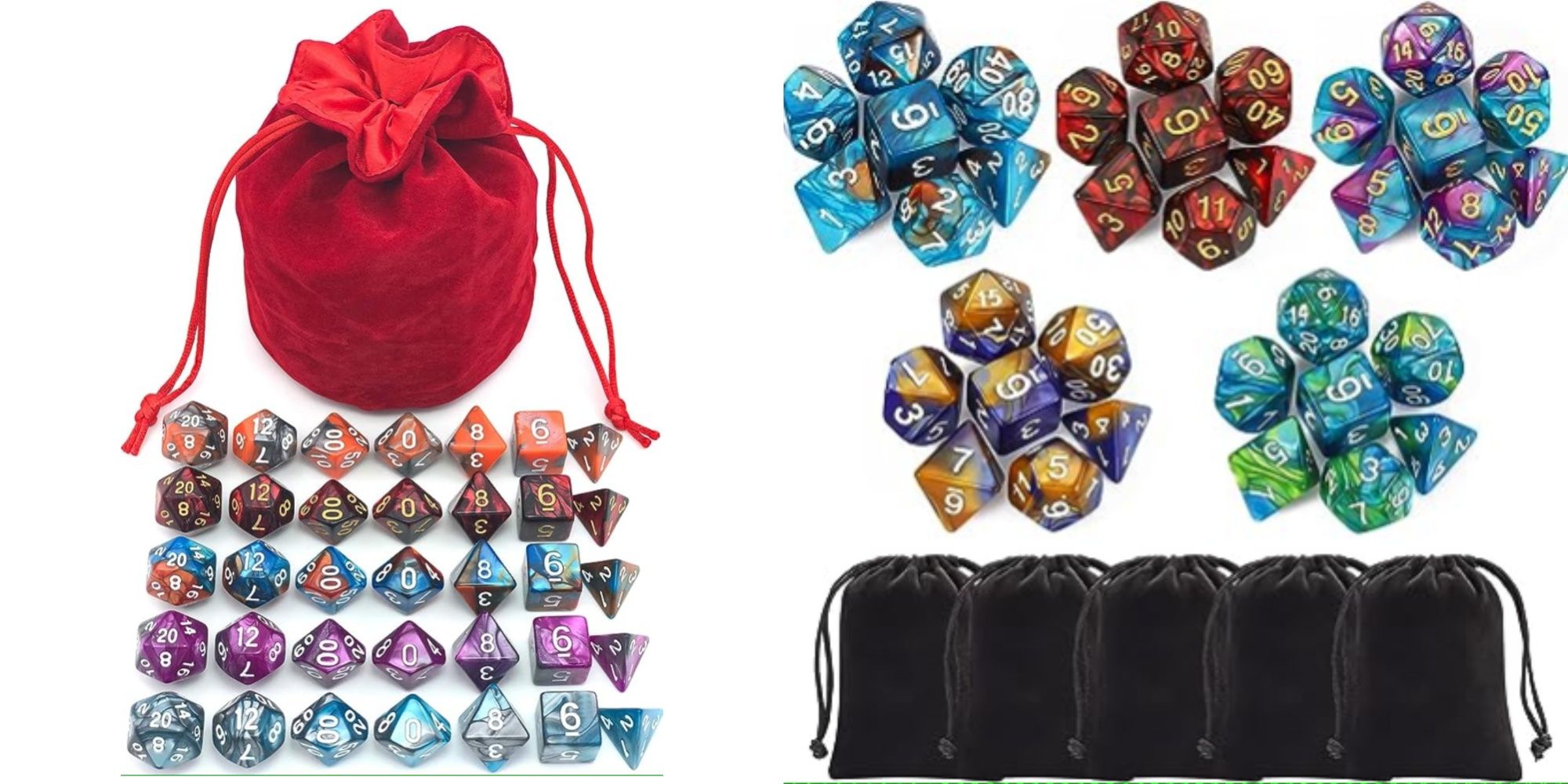
Where To Buy D&D Dice Sets
Whether searching online or in-store, here are the best places to buy your next set of D&D dice.
That’s not to say the use of dice in games, at large, is usually a bad thing, but there’s a correlation to the amount of luck from dice there is in a game and how dissatisfying it can be if the game trudges on for too long. In other words, the longer a game is, the less it should rely on dice for how much impact randomness can weigh on a player’s strategy. That’s why we’ve assembled this list of the best dice rolling games to help you discover the best value for your money when selecting games that heavily feature dice. Let’s begin!
The Best Dice Rolling Games
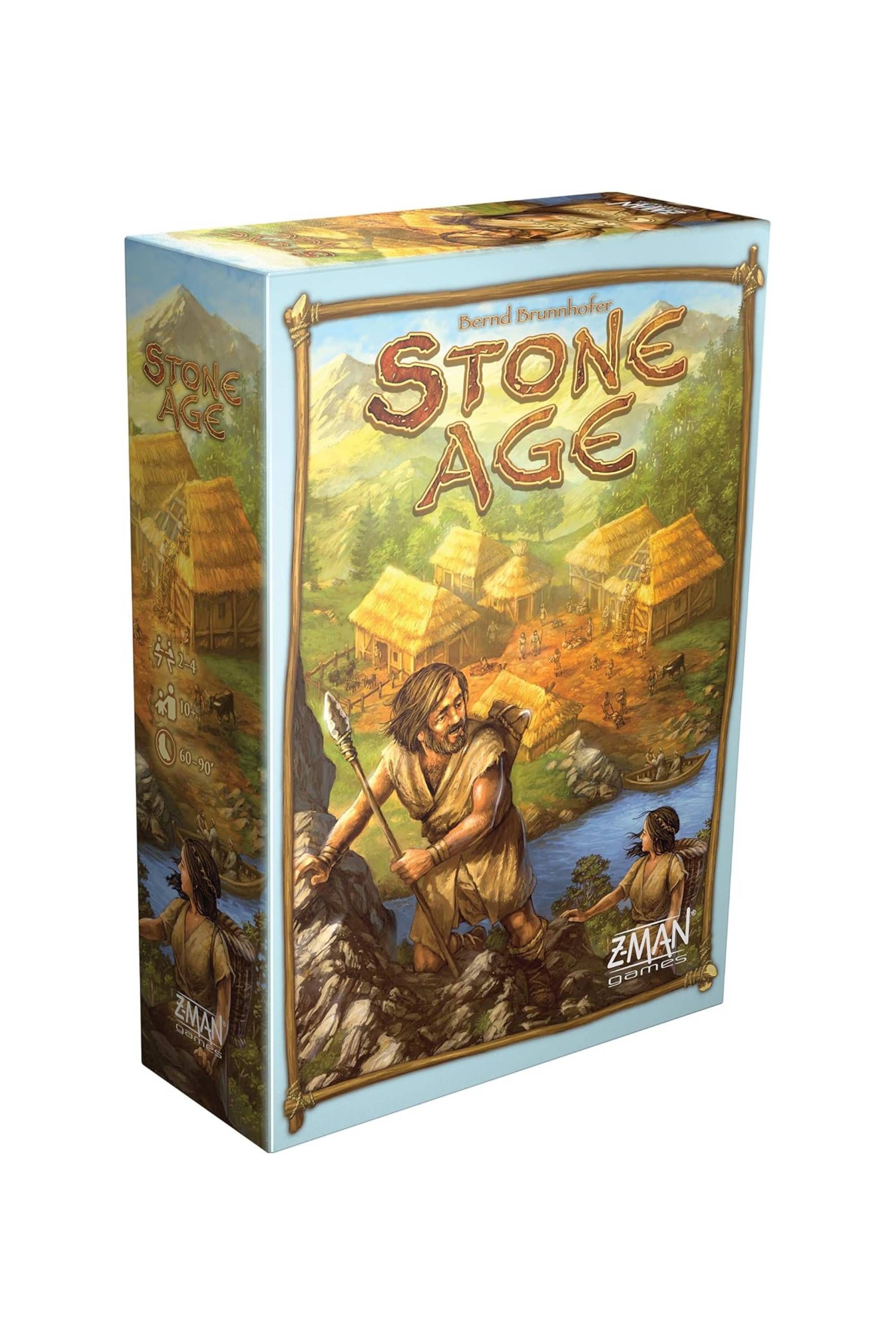
Stone Age
Best Introduction
Stone Age is approachable and satisfying for what it is, and its use of dice is elegant.
Stone Age takes a step back to simpler times when humanity’s greatest concerns were hunting for food and building primitive structures. It blends worker placement with dice rolling in a familiar way that just makes sense.
- Easy to get into.
- Great blend of worker placement and dice rolling.
- The randomness of the dice can be frustrating at times if you don’t invest in tools.
A charming take on paleolithic civilization-building, Stone Age combines the lovable qualities of worker placement games and mixes them with dice rolling. Stone Age is a great game to transition to if you’re used to games like Monopoly or Yahtzee. It takes the familiar use of regular six-sided dice and has players roll as many dice as the amount of workers they assign to different areas of the board. More than any other game on this list, you will encounter less than productive turns when the dice don’t roll your way, but there are features of the game that allow you to mitigate that luck.
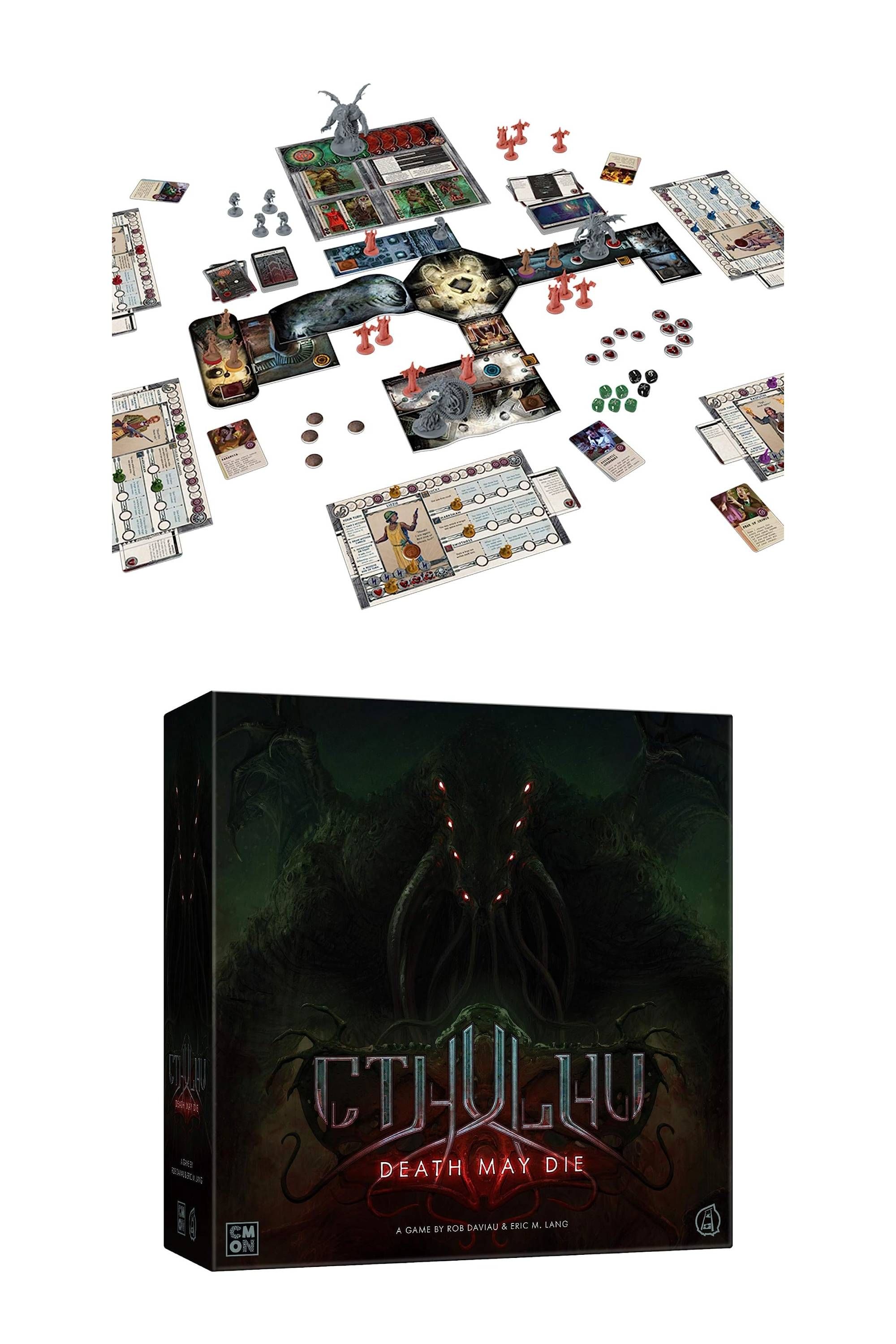
Cthulhu: Death May Die
Best Horror Dice Game
A robust system that strips out the minutiae of long, hefty rulebooks.
$88 $110 Save $22
Cthulhu: Death May Die throws players straight into the action against a Great Old One terrorizing the world. Steer your unlikely investigator into the fray as you fight of insanity.
- Great execution of the theme.
- The miniatures are exquisite.
- The dice combat is clever, yet simple.
- Games with higher player counts prevent your character from leveling up as strongly than in games with fewer players.
- Map tiles are disturbingly tiny.
Cthulhu: Death May Die pays less emphasis on traditional Lovecraftian mystery-solving and more on hacking and slashing through broods of monsters by chucking dice. In this game, your investigator begins moderately insane, with a unique quirk that sets them apart from others at the table. Where other games set in this genre presume that you, the meager human investigator who couldn’t fathom inflicting even a scratch on one of these godlike beings, Cthluhu: Death May Die gives you a gun and says, “Go kill Cthulhu.” And guess what? You actually can.
The key hook here is the ease of getting into the game. Cthulhu: Death May Die has a very innovative plug-and-play module system where you can pair a scenario with a different Old One that you will face.
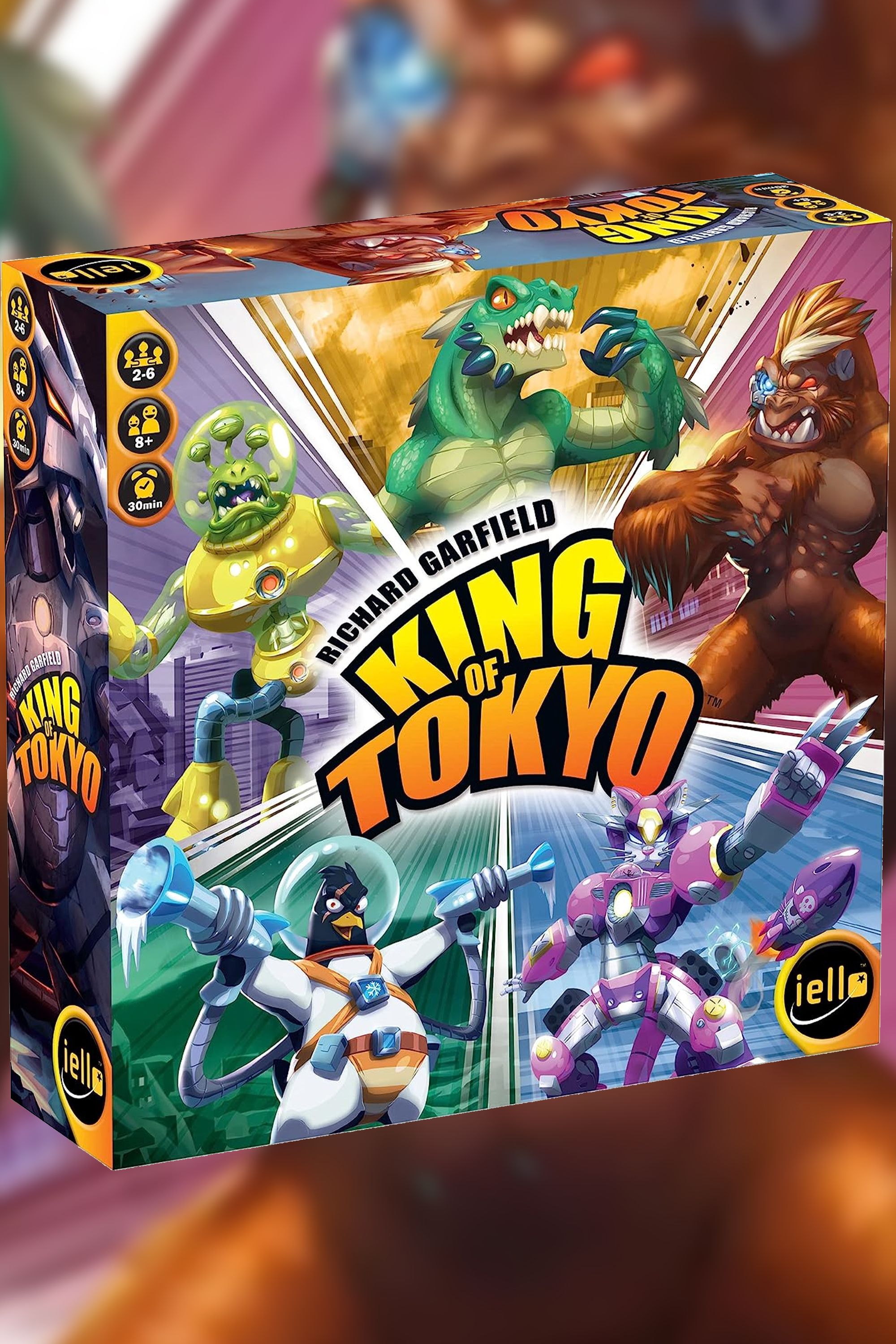
King of Tokyo
Best Alternative to Yahtzee
A familiar dice mechanism adapted to beat-em-up monster battling.
Ever wondered what Yahtzee would be like with Kaiju? You’ll find out in King of Tokyo.
- Great choice if you like direct conflict with other players.
- Simple enough for the whole family to participate.
- Can accommodate high player counts.
- Games are fast.
Back to talking about Yahtzee, King of Tokyo is an evolution of Yahtzee as if you gave it steroids and a feral instinct. That’s right, King of Tokyo has players assuming the role of Japanese Kaiju, raining havoc over the city of Tokyo. The trick is that each monster wants to be the sole victor in demolishing the city, and they’ll stop at nothing to achieve such a title, even if it means destroying their competition.
King of Tokyo gives you plenty of options on your turn with the dice that you roll. It forces you to decide if you want to be more economical on your turn to acquire points (one of the victory conditions), or if you just want to beat the other monsters at the table to be the last one standing (the other victory condition). It’s a quick, energetic contest that gamers young and old can enjoy.
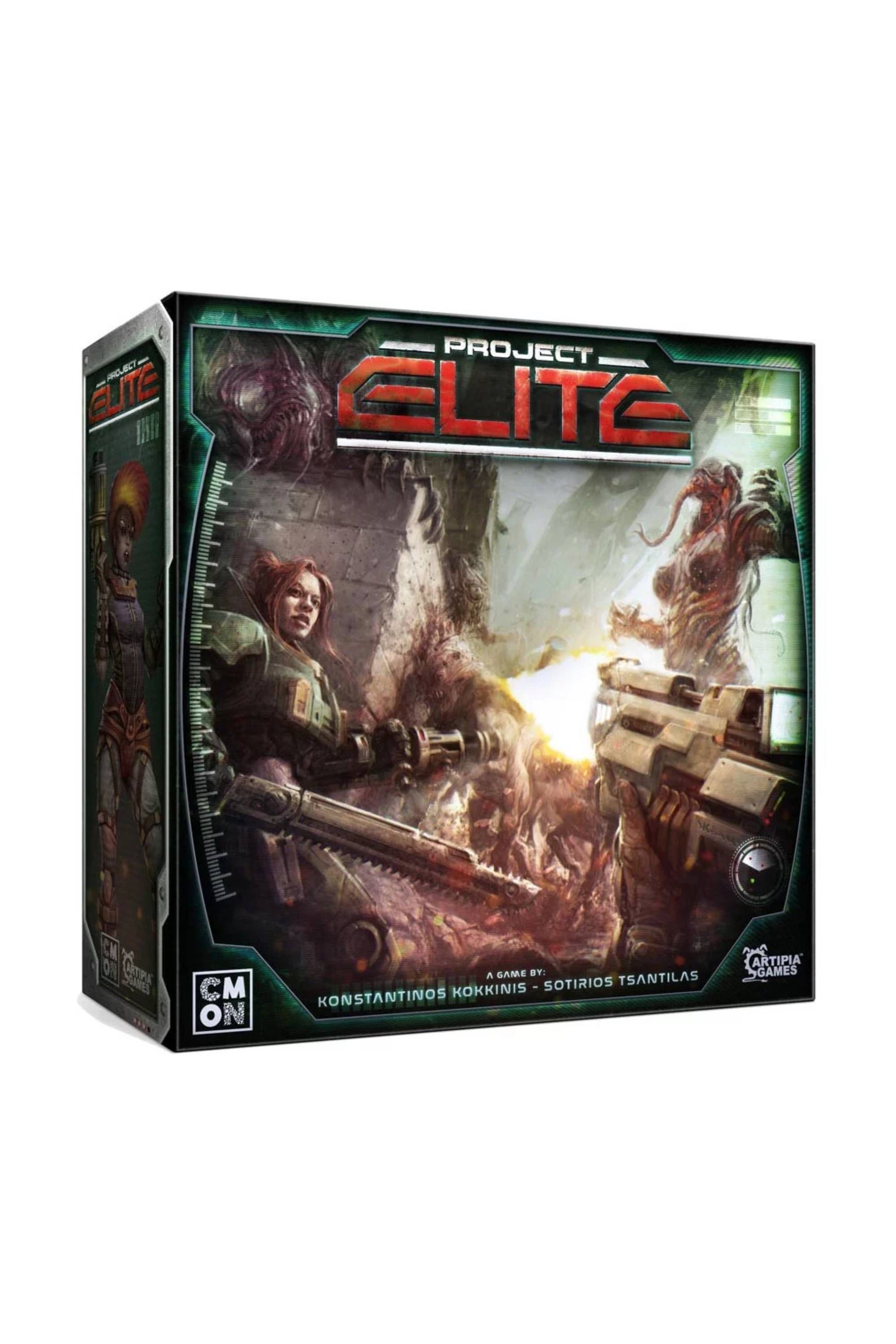
Project: Elite
Best Real-time Dice Game
A cooperative real-time dice-rolling sci-fi action game with tense sequences and thrilling combat.
Project Elite takes the energy of a first-person shooter game and puts players in a race against time as you frantically roll dice to quash waves of aliens storming a marine base.
- Stellar miniatures.
- Games are quick.
- Real-time dice chucking is frantic, yet envigorating.
- Game mechanisms are simple to learn and don’t get in the way of gameplay.
- The real-time element can be stressful for some.
- Not many ways to adjust difficulty, which means it may be too hard for some and too easy for others.
Take the energy we just described for King of Tokyo and crank it up to eleven. That’s Project Elite. This game pays no homage to cutesiness or self-aware references. No, it’s a brutal and gritty shooting gallery that has players cooperating with each other to mow through waves of hostile aliens.
What makes Project Elite intense is that there are no turns. Everyone rolls dice simultaneously, and as fast as humanly possible to acquire the right symbols they need from their dice to carry out actions on the board, such as moving around, interacting with features on the board, and, most importantly, gunning down aliens. It’s a vibrant experience and definitely worth trying.
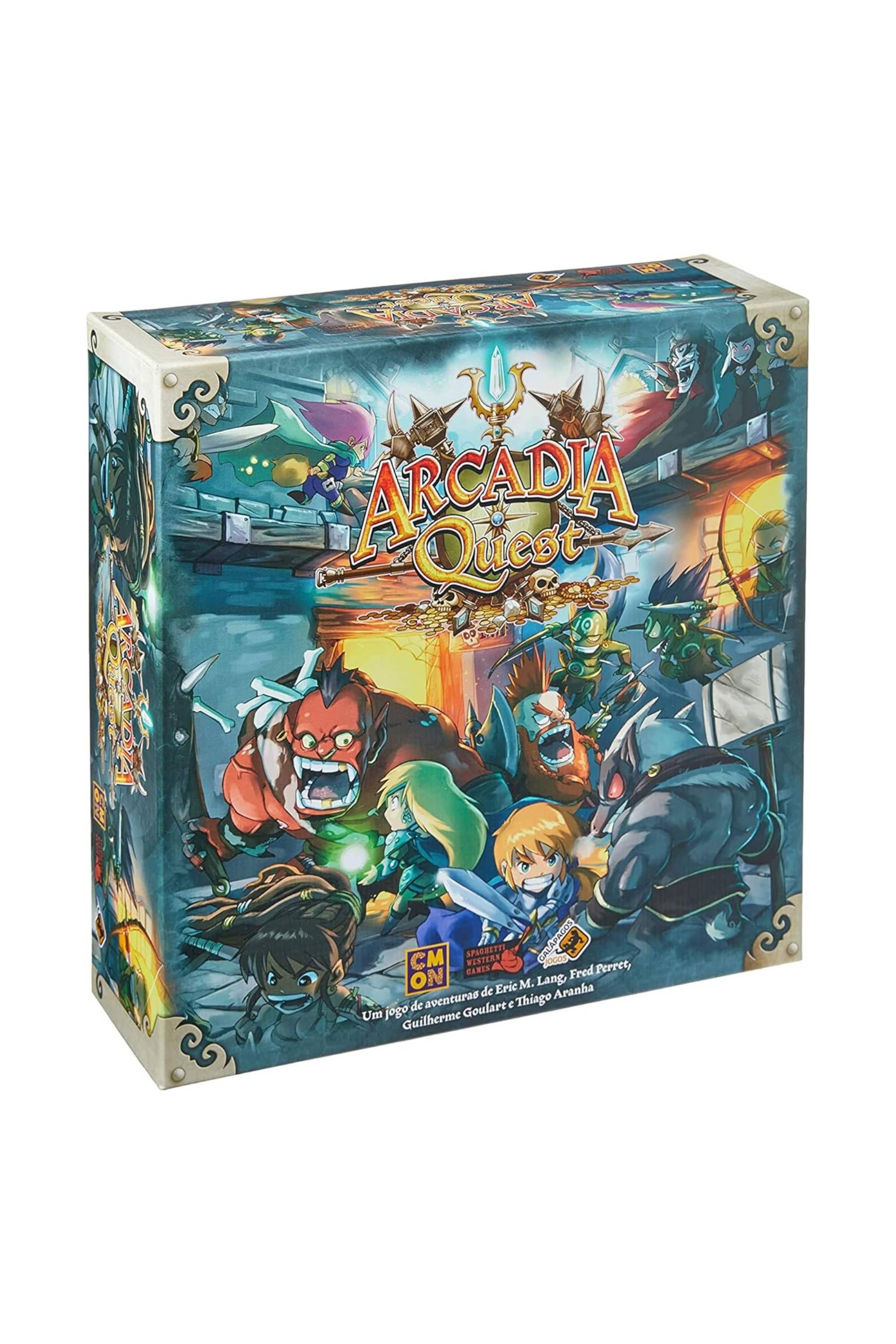
Arcadia Quest
Best Lightweight Dungeon Crawl
A lightweight alternative to heftier tabletop RPG’s in a box.
Arcadia Quest somehow does it all. It’s a dungeon crawler with dice, has whimsical art, is an RPG-like character building (to an extent), has elements of PvP and PvE, and presents the whole experience in about an hour.
- Games are fast.
- Great use of the “exploding dice” mechanism.
- Chibis are always great.
- Setup and tear down can sometimes take as long as it takes to play the actual game.
Arcadia Quest is chaotic and somehow quaint at the same time. Players will assemble a small guild of three heroes who will spring into an arena to fight other guilds and defeat monsters controlled by the game. The game features delightful chibi-style miniatures, and is a treat to play or even just to watch. But why is the dice rolling component of the game special? It’s because of a little mechanism coined “exploding dice.” Put simply, you’ll use dice in Arcadia Quest to attack other players and monsters, and you’ll also use them to defend against attacks.
Every die has a few symbols you’ll look for to inflict and prevent damage, but there’s also a special “burst” symbol that lets you count it as a success you need, plus you can re-roll the die again in hopes of yet another symbol. You can probably see where this is going. The game sets you up, so you can potentially keep rolling your dice over and over again if you keep rolling burst symbols, and when that happens (even if it’s rare), it’s a spectacular thing to behold.
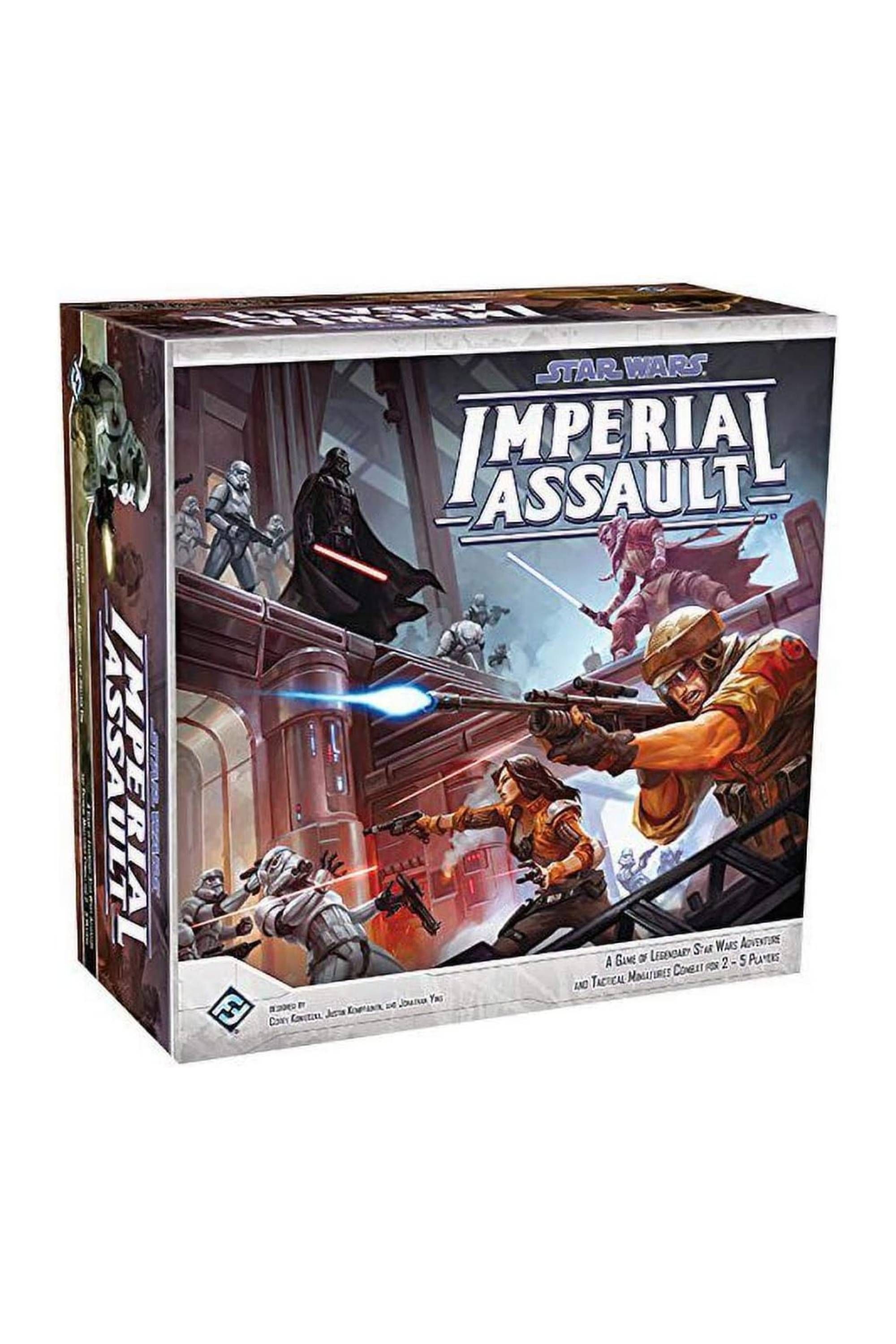
Star Wars: Imperial Assault
Best Value
If you like Star Wars, beautiful miniatures, and dice combat, you should check this one out.
$98 $110 Save $12
Star Wars: Imperial Assault is an evolution of many titles before it, and it all culminates together into a refined system that leverages custom dice like no other game.
- The “surge” mechanism on the dice is elegant and intuitive.
- A worthy expression of the Star Wars IP.
- Three different game modes right out of the box.
- The selection of units in the base box can become stale after several plays, warranting expansions to keep things fresh.
- Luck of the dice can interrupt a strategically planned-out turn.
Star Wars: Imperial Assault hits the mark in so many ways, but it deserves to be on this list for its ability to condense a lot of substance into a few different dice. If you love Star Wars, you’ll naturally be positioned to enjoy Imperial Assault, but what’s beyond the theme is a clever use of customized dice and the iconic “surge” mechanism seen in prior titles like Descent: Journeys in the Dark by the same publisher, Fantasy Flight Games.
Players in Imperial Assault will control the insurgent rebels while one player takes on the role of the empire’s forces. Players will guide characters around the board trying to accomplish specific objectives, and as you might imagine, combat will inevitably ensue. Where the dice come in is for fighting, and on those dice are surge symbols, which, when rolled, trigger different abilities based on which character rolled them. It’s an incredibly streamlined and simple solution for packing huge levels of variability through dice resolution in just a handful of dice. It’s a huge component of what makes Imperial Assault a modern classic.
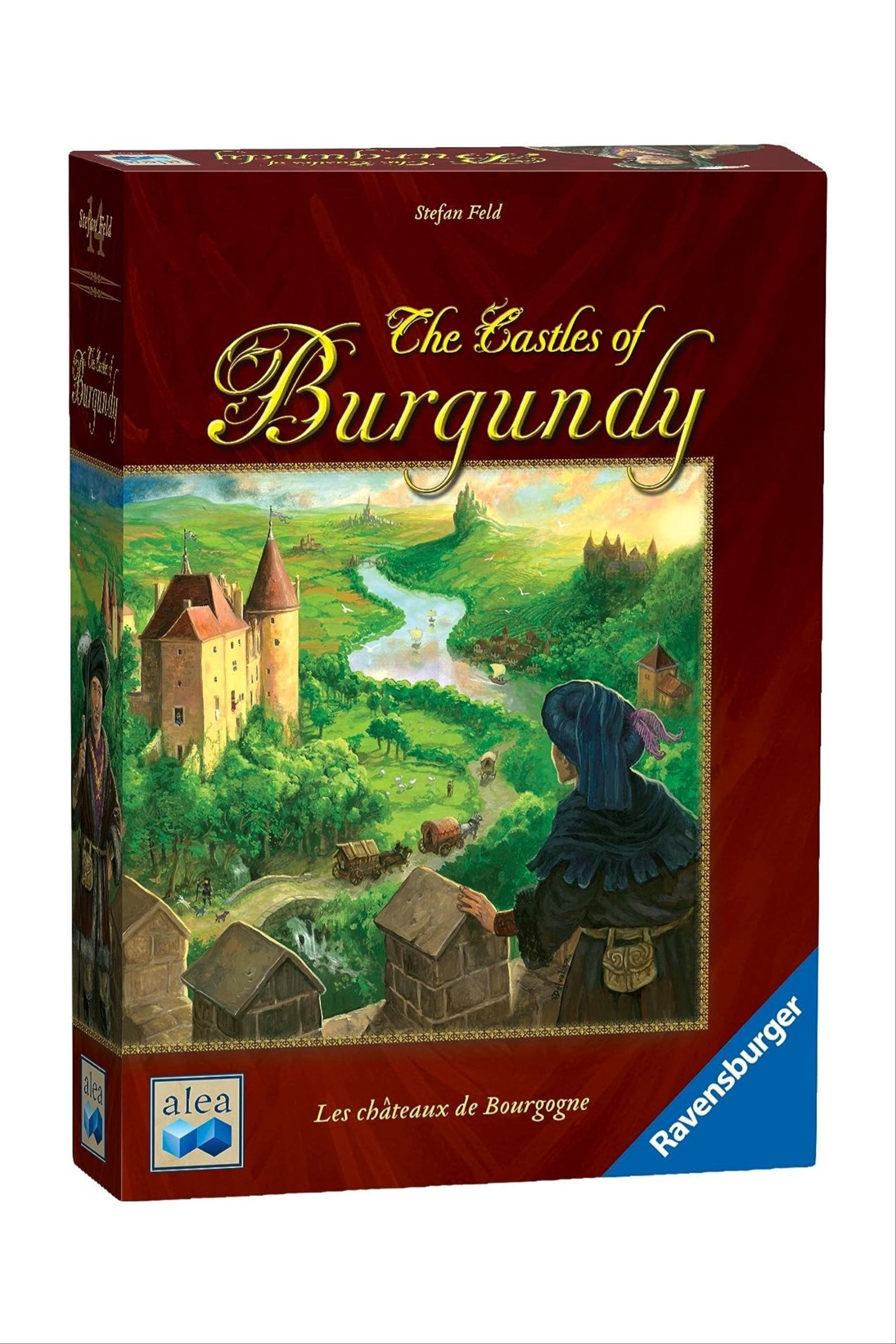
The Castles Of Burgundy
Best Overall
A groundbreaking way of using D6 for action selection.
The Castles of Burgundy is unassuming on the outside, but what lies within is the best application of regular six-sided dice board gaming media has yet seen.
- You always have something to do on your turn with your dice.
- Several ways to mitigate luck of the dice.
- Every turn has satisfying choices to make with your dice.
The Castles of Burgundy might not look like much at first blush, but what’s inside is a promising experience of medieval city building via dice. The premise is simple. You’re given a blank canvas of a duchy in which you’ll need to construct buildings. You get said buildings by claiming them out of a central pool of available blueprints available to all players. The catch is that you have only two dice to claim blueprints with, and you can only claim blueprints for buildings that match the dice values you’ve rolled.
After you get those plans, you can then construct them in your duchy, but following the same logic, you have to place them in spots on your board that match a die value you currently have available to spend. It might seem like a nebulous concept at first, and it’s because it is. But after getting through your first round, what lies beyond is a sleek and clever game system that offers crunchy decisions and quick turns.
FAQ
What is a dice rolling game?
A dice rolling game is any game that heavily emphasizes the use of rolling dice to determine actions and outcomes for players at each turn of the game. While many different games incorporate dice, they may not all deserve to be categorized as a solely a “dice rolling game.” They could emphasize other mechanisms more strongly than dice, in which case they should be categorized as something else.
What is the oldest dice rolling game?
Although it didn’t use traditional dice in the way most of us are used to, the Egyptian game of senet, which has been around since before 3000 BCE, bore the use of two-sided throwing sticks to generate random outcomes, effectively simulating dice.
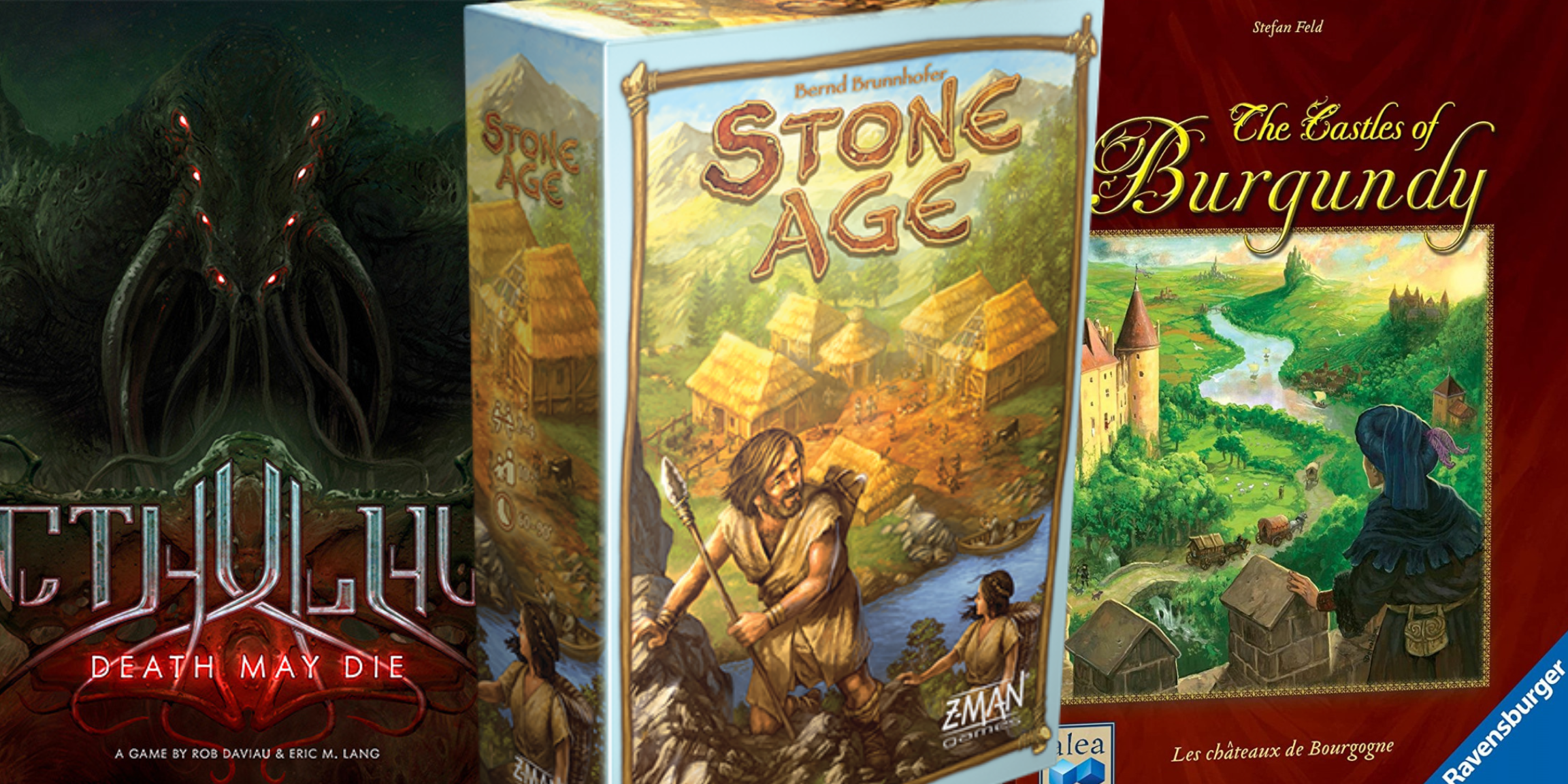

Leave a Reply